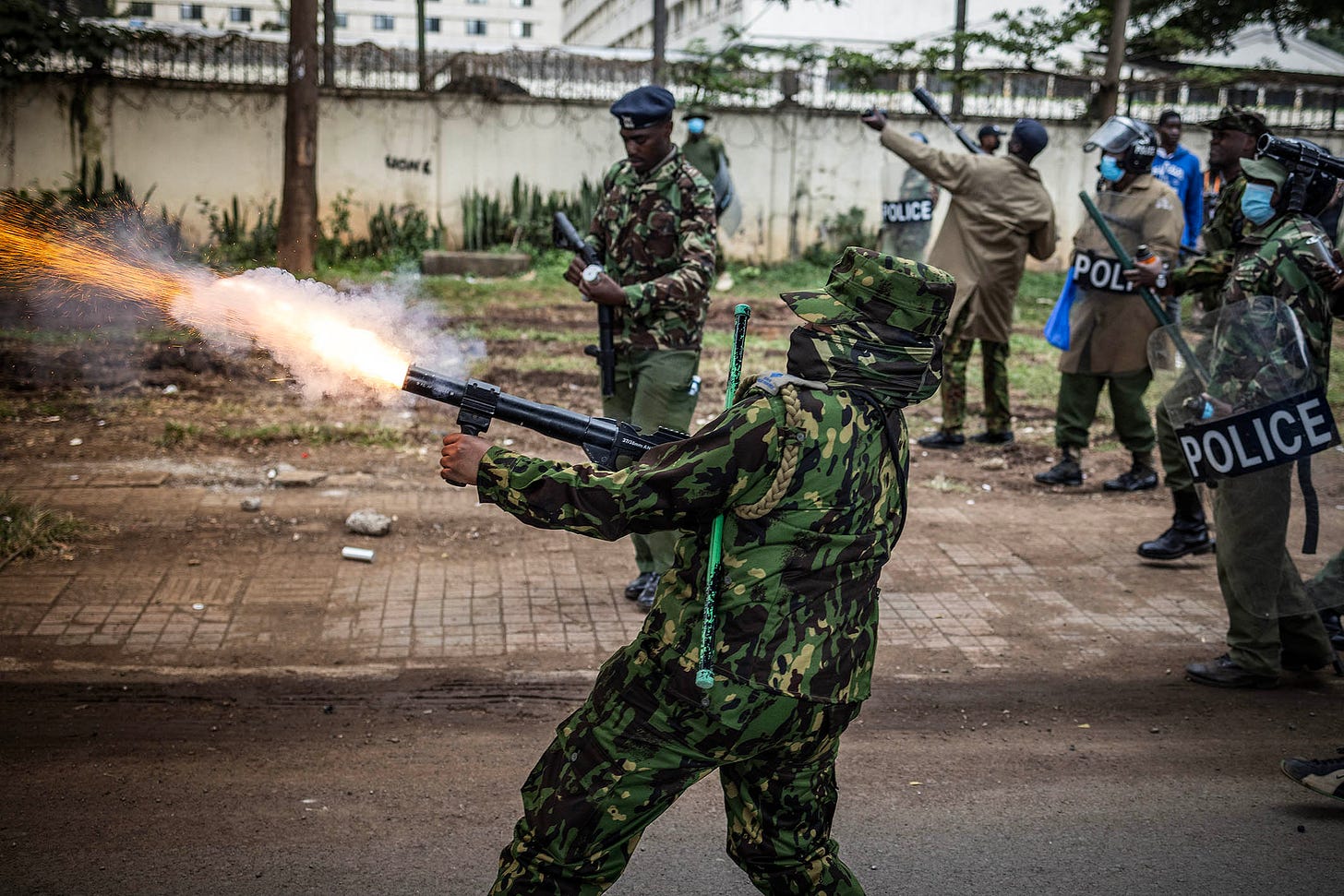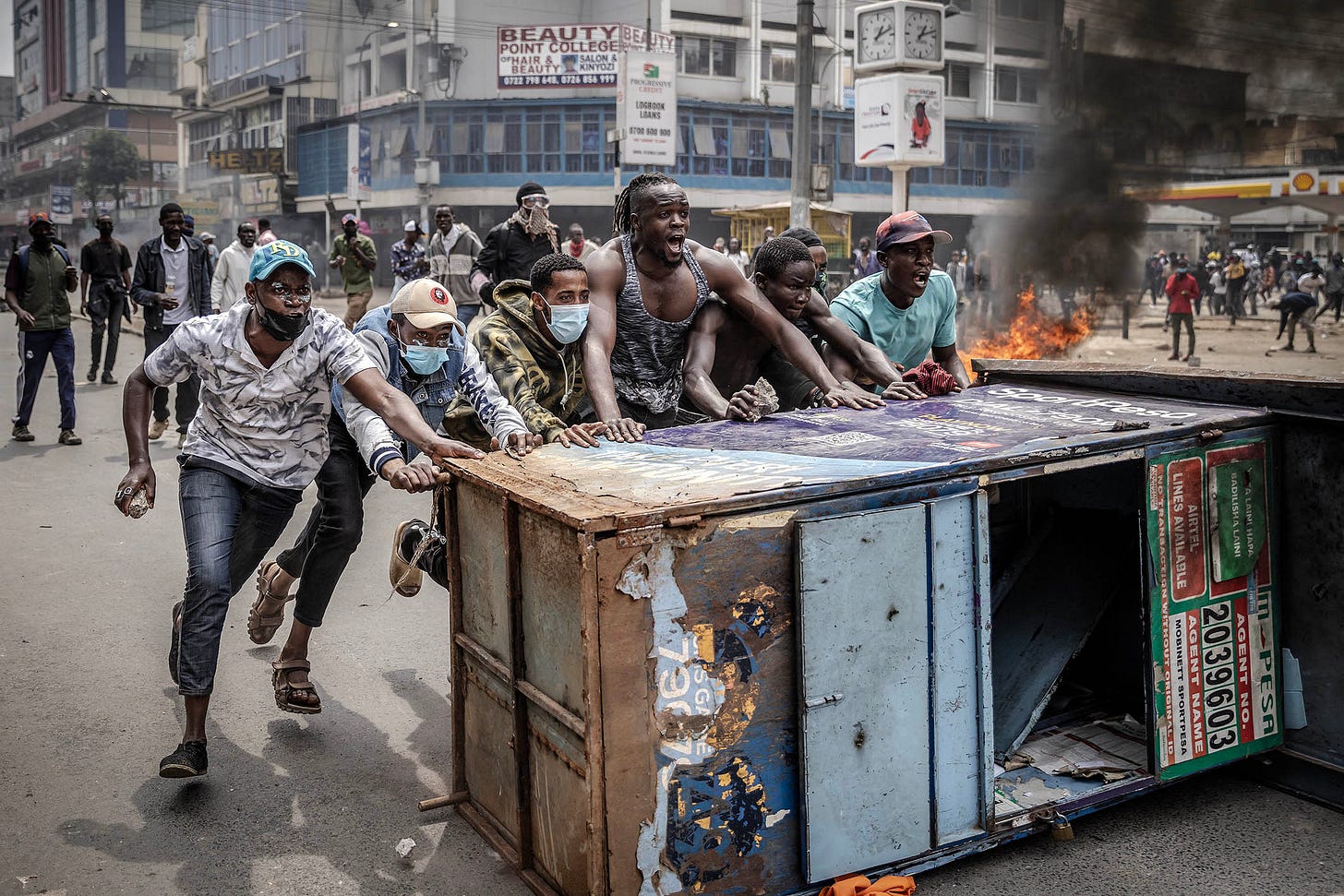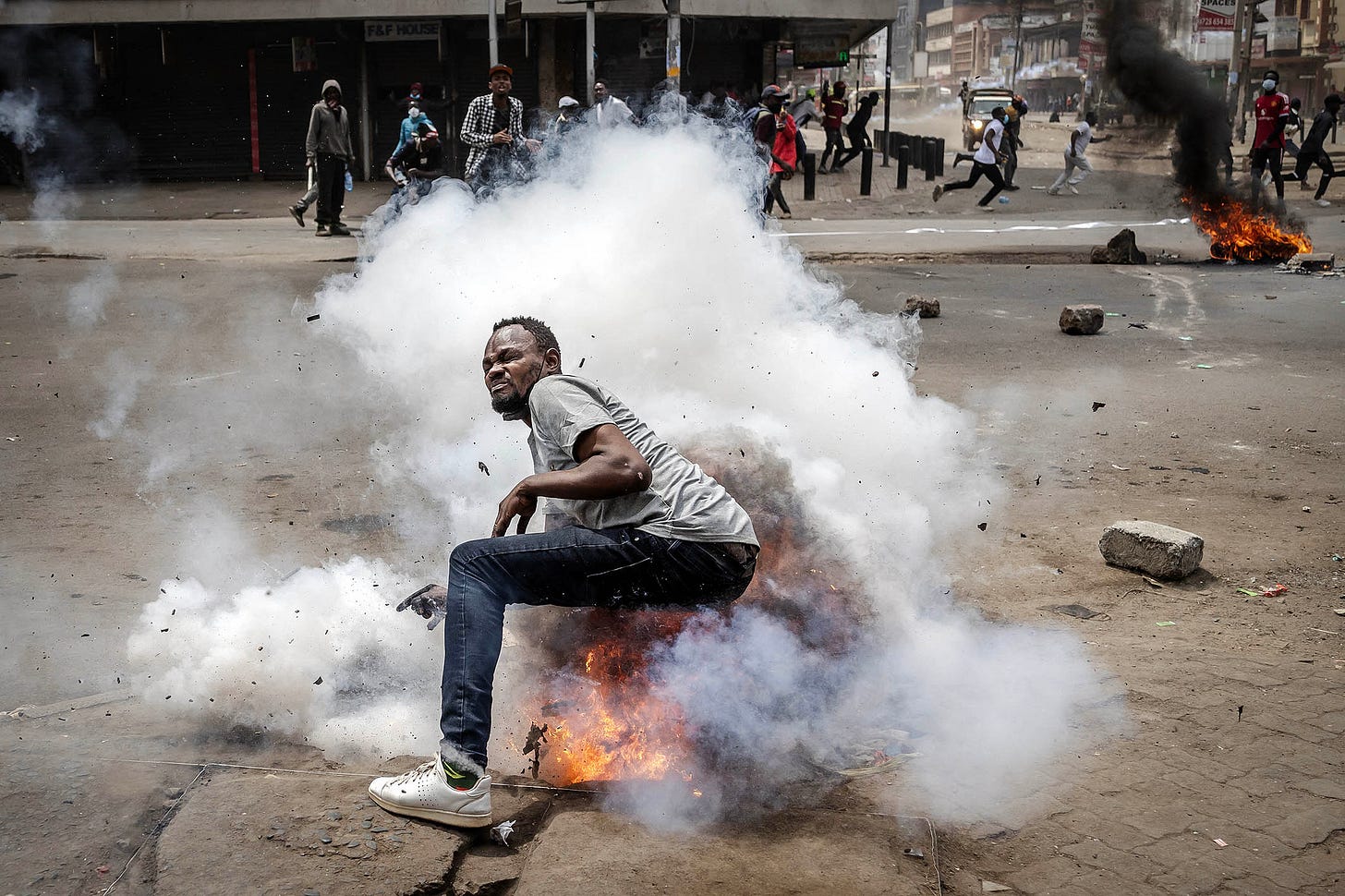Kenya: Life is cheap when police turn on the people
Rex Masai was the first victim of a regime intent on forcing through legislation opposed by the protesters. His family are inconsolable, and dubious about seeing justice done.
Mukanzi Musanga in Nairobi
The Kenyan state killed dozens of protesters last month. Rex Masai was the first victim of a regime intent on forcing through legislation opposed by the protesters. His family are inconsolable, and dubious about seeing justice done. But people are still resisting.
On the 19th of June, protesters took to the streets of Nairobi. After trying other ways to stop the proposed 2024 Finance Bill that would introduce a raft of new levies and tax hikes, this was the next step. The next day, Tyron Ndirangu found himself in a group running for safety, away from the police, who were firing bullets and tear gas. Then someone shouted, “I can’t move!” The group stopped. “We were horrified. Rex had been shot and was bleeding uncontrollably,” says Ndirangu.
Forgetting their own run for safety, the group chose to carry the wounded protester – Rex Masai – to a health facility. Recounting that day, Ndirangu tells The Continent: “The police caught up with us. We tried to explain to them that our friend had been shot but they ordered us to move and leave Rex behind. One of them hit me with the barrel of his rifle on the shoulder.”
Still, they persisted, making it to a nearby hospital amid the chaos. But the staff refused to let them in, fearing that the chaos outside would spill into the hospital. As they frantically banged on the gate and desperately begged, a police tear gas canister landed near them, Ndirangu says. An hour the gate was finally opened – but it was too late: Masai was dead.
“I have never seen anything as horrific as that,” Ndirangu says. “My friend died in my arms at the hospital doorstep. The helplessness we felt was awful. And then I had to make that difficult phone call to his mother to break the tragic news.”
“I have never seen anything as horrific as that. My friend died in my arms at the hospital doorstep ... I had to make the phone call to his mother to break the news.”
Rex Kanyike Masai, buried on Friday 5 July in Kamuthanga, Machakos County, was the first person police killed in the protests which spread countrywide and culminated in the storming of parliament on 25 June – moments after MPs passed the Finance Bill.
Rex was Gillian Munyao’s eldest child. “My son was loving and respectful. He died from unwarranted police violence. He did not deserve that. We are completely devastated and inconsolable,” she says.

Her husband, Chrispine Odhiambo, wants to work with the Law Society of Kenya, which contacted the family to offer legal aid, but is sceptical about the outcome: “It’s hard to believe that we will find justice because the same cop suspected of killing Rex is still working and was even captured on camera shooting at other protesters.
The protests eventually compelled President William Ruto to withhold his assent to make it law. To achieve that, 39 people including children died in the protests, over 360 were injured and 627 arrested according to the Kenya Human Rights Commission.
Added to this, the commission says that 32 people were abducted.
The abductions are believed to have been sanctioned by the state. Local reports say that the bodies of some of the abductees are now being discovered dumped in dams, quarries and similarly isolated locations. The Continent spoke to a family member of Denzel Onyango, a protester who went missing after images of him at the 25 June protests at parliament appeared on TV and online. On 6 July, his body was found at a quarry in Juja, 33km outside Nairobi. The family member says his neck bore bruises and his kin are putting off his burial while his death is investigated Ruto did apologise for the “arrogance and show of opulence” from ministers in the ruling party – but blamed “rogue” police officers for the violence.
On Friday, after nine bodies were found at a dumpsite near Nairobi, the president announced that he had accepted the resignation of the national police head, Japeth Koome. Prisons head John Warioba has been asked to sit out the rest of his tenure, with his duties assigned to a new appointee.

Whatever justice the Kenyan state may or may not deliver, young Kenyans are trying to honour those who, like Masai, lost their lives. On Sunday, thousands streamed into Uhuru park for the Shujaaz Memorial Concert for all those who were killed during the protests.
Powerfully, the concert took place on 7 July, a date with great significance for Kenyan resistance. Saba Saba – the seventh day of the seventh month – is historic because of a rally held on 7 July 1990 to demand the end of one-party rule under former president Daniel Arap Moi. Nearly 40 people were killed, many more injured and thousands arrested.
The event supercharged the pro-democracy movement that eventually revived Kenya’s multiparty democracy. Saba Saba is never officially commemorated by the state but Kenyans have often found ways to remember it. This year, a generation born after the first Saba Saba was in Uhuru park acknowledging the cost of resistance and resisting anyway.






